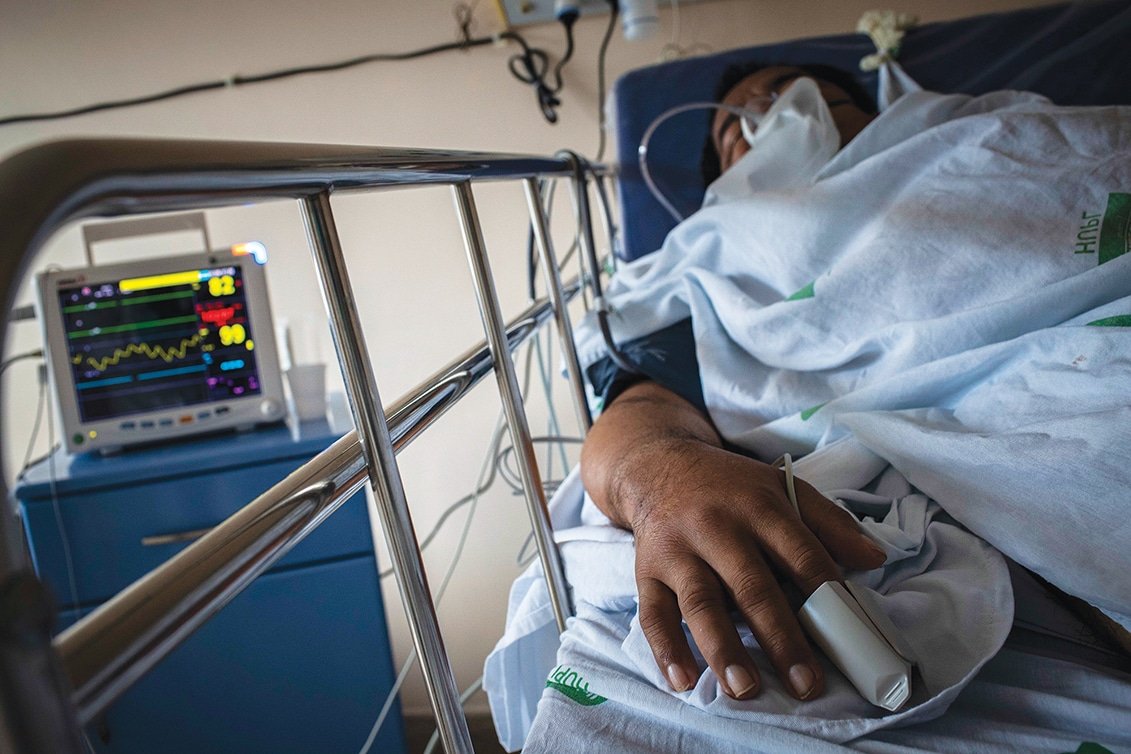New COVID cases, hospitalizations plunge in New Jersey, but deaths continue to rise
By Kleibeel Marcano, Reporte Hispano
This story was produced as part of a six-month COVID-19 reporting fellowship with NJ ethnic and community media organized by the Center for Cooperative Media at Montclair State University. It has been updated and edited from its original version.
Amid the surge of the Omicron variant in January, José Luis Castillo died of COVID-19 at a hospital in Passaic, NJ. Two days later, his family and friends held a memorial service with mariachis, tequila and the image of the Virgin of Guadalupe.
Castillo was one of the 2,380 residents of New Jersey who died from the coronavirus in January—the highest one-month total since the earliest periods of the COVID pandemic, state officials said.
But while the rate of new infections and hospitalizations has been steadily falling in recent weeks, the number of COVID-related deaths continues to rise. The death toll in January accounted for 8.2 percent of the state’s 28,744 confirmed COVID deaths.
Dr. David Adinaro, deputy commissioner for public health services at the New Jersey Department of Health, said that when the number of infections begin to decline, it means that the state has already reached its peak and passed the critical state of contagion.
The rate reduction in new infections is partly due to the high level of vaccination in the state, Adinaro said, as well as the protective measures that most people continue to practice.
“I am very proud to be in New Jersey, and to have one of the highest vaccination rates in the country–and see people wearing masks constantly,” Adinaro said at a recent virtual press event, hosted by the Center for Cooperative Media at Montclair State University.
Nearly 90 percent of all vaccine-eligible individuals in New Jersey have received at least one dose of the vaccines, Adinaro said, adding that as of January 31, close to 14 million doses of COVID vaccines have already been administered in the state.
Since the resurgence of new infections due to the Omicron variant, he noted, hospitalizations are high among the unvaccinated population. He urged residents to get vaccinated or, for those who are fully vaccinated, get the booster shot.
CDC studies show that vaccines are highly effective in reducing COVID-19 infections and deaths. Between October and November 2021, the weekly average of deaths per 100,000 persons among the unvaccinated was 7.8, as compared with 0.6 for people who are vaccinated.
For those with both vaccines, plus the booster, the death rate was just 0.1.
Adinaro also urged parents to vaccinate their children, if they are eligible. “Vaccinating your child is really the first and most important step in protecting him,” he added.
Cases of infections in children have also increased in recent weeks across the country. While children accounted for about 3 percent of the country’s COVID-19 infections at the end of March 2020, pediatric diagnoses accounted for more than 17 percent during the Christmas holidays.
One in four cases among children are diagnosed each day in recent weeks of January, according to the American Academy of Pediatrics.
“COVID-19 doesn’t look like it’s going to go away anytime soon; we do not know yet. But I think it’s pretty safe to say that it’ll be with us for a long time,” Adinaro said. “Therefore, the importance of getting vaccinated remains as critical as ever.”

